Rebooting the S.I:
Wark's The Beach Beneath the Street
24 Sep 2011

WRITING A REVIEW OF THE BEACH BENEATH THE STREET
WAS difficult to do at first. Where do you start? This amazingly well-researched inquiry into the life and times of the Situationist International is unlike most other books on the subject.
Rather than approach the subject from a single angle or perspective, the book aims to take a multiplicity of approaches. The aim is to deconstruct, and reverse-engineer aspects of the S.I. that can better help frame the ideological impasse we're faced with in the new century.
As Wark describes:
"There are plenty of celebrations of bohemia. What is rare is to turn a critical theory of delinquency into a delinquent critique."
The game-theory of Johan Huizinga and his "homo-ludens" is key to this concept as is the critique of everyday life as expressed by Lefebvre (whose moment of realization, Wark writes, about everyday life came to him while desperately trying to avoid drowning in the ocean as he swam against the tide and current). As with all games, the dynamism, kinesis and flow at the core of gameplay are somewhere near the centre of what makes the S.I. concepts of drifting and play interdependent. Pinball machines, board games, bored games, jukeboxes, cities, random chance, surprises, drinking, writing, romance merge together into a new totality to oppose that which dominates us. Wark drifts easily between the key concepts, yet links them all together as a kind of tour guide of revolution that makes the journey all the more fascinating.
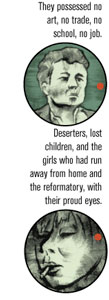
Greil Marcus filtered the S.I. through the lens of rock journalism, connecting his Lipstick Traces to join the dots between the ranters, dada, the S.I. and punk.
Rather than approach the subject from a single angle or perspective, the book aims rather to take a multiplicity of approaches. The aim is to deconstruct, and reverse-engineer aspects of the S.I. that can help better frame the ideological impasse we're faced with in the new century.
Sadie Plant used a critique of the S.I. to unpack brilliantly the problematics of detournment in a world replete with commercial usurping of the same methods in her book The Most Radical Gesture.
Thus, the Lettristes and the S.I. are sufficiently remote in history to enjoy constant re-appraisal and re-interpretation. Wark's book is a bit like a 50th anniversary re-release of these two groups' best ideas, but in a shape and form consistent with their individualist take on proletarian revolution, and the romantic preoccupation with the 'beautiful object'.
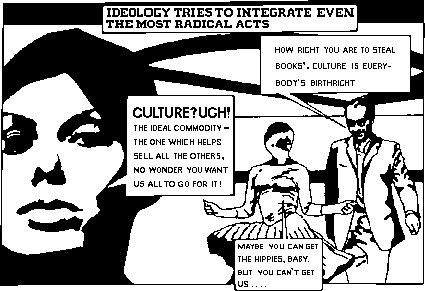
Wark has gone overboard making the book an actual precious artefact, much like Jorn and Debord's fabled book Memoirs, only in place of sandpaper for a cover, we have a comic strip style poster by Kevin Pyle called Totality for Kids which is glossy and slick, and would be at home in the comics/collectibles store, art gallery bookshop and university library simultaneously. In marketing terms, Wark's team have certainly hedged their bets. There is even an online interactive version of the comic strip for pro-situs with iPads, although this image bears enough cognitive dissidence to really mess with one's head.
But its also very much a labor of love. I think in terms of Wark's own writing (I've been a fan since the early 1990s) this is at least as good as his best book yet, Virtual Geography, which to this day offers the neatest appraisal yet of media spectacle.
Pinball machines, board games, bored games, jukeboxes, cities, random chance, surprises, drinking, writing, romance merge together into a new totality to oppose that which dominates us.
It's as if Wark has taken cues in making this book from Jorn and Debord themselves. Wark writes about Asger Jorn's paintings:
"The goal must be a pictorial process free and open to the whole of life, a diagram of forces, trajectories, possibilities, rather than a representation of an object, cut from the world as a frozen moment."
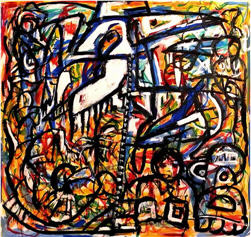
Wark's historical re-enactment and acting out of the greatest moments of the S.I. has a kind of ritual function. Its as if by invoking the distilled pure alcohol of Situations at their best, we might in turn adapt these neat moves into plans of action for our own time. Would that such were so.
Not a minute too soon. Part of the problem we face is that spectacular society has all but erased evidence of the true philosophies of political art groups like the S.I. The academy offers little respite, only its defensive logic of cyclic time and ritual. Wark does however suggest that within such institutions, it is possible for space to emerge for living without 'dead time'.
In the end, however, Debord was the last and only true Situationist, but,this is deliberately played down in this book, not from spite, but so that Wark can better appraise the S.I. in terms that they themselves were attempting to define and articulate-- the original, broad, International concept of the movement that included a pan-European agenda and makeup. Curiously, the fashion to marginalize Debord these days, while perhaps a part of a critique of the "great men only" narrative of history, which to my mind, is a liberal position, may also turn Debord into the "elephant on the couch." While Debord can be written into the margins, I don't agree with the strategy to do so, which Stewart Home and others also take. Debord was the S.I., ground zero of every story about them, Jorn, Lefebvre, Constant, Bernstein notwithstanding, and he is, to many, myself included, important.
The goal must be a pictorial process free and open to the whole of life, a diagram of forces, trajectories, possibilities, rather than a representation of an object, cut from the world as a frozen moment.
I think it prophetic, in this context, that I heard the news of Debord's suicide from Greil Marcus personally, in Berkeley, in 1994. Debord erasing himself from history in such a dramatic way, should be understood best as a release for others to take up the challenge. as Wark has done. The drunken master is still assured of his centrality in the story, though at one point Wark semi-demotes him as a mere secretary, miffed at all the work he's left to do publishing and managing money.
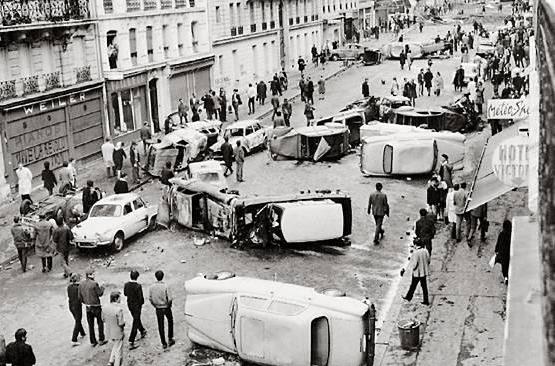
Wark on Asger Jorn again:
"His is a development of Marx as a critical postwar discourse that creates its own games, makes its own rules, answers to quite a different time, and belongs to a more marginal but more interesting space, the space not of an institution, but of of a provisional micro-society, within which the practice of thought might be otherwise"
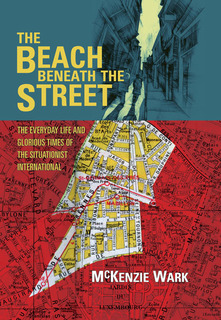
Wark skillfully integrates his historical analysis with insights into how a pro-situ philosophical treatment of life requires new co-ordinates, new bearings, and broader concept of oneself in relation to the official understanding of the measurement of time/space. This stuff can change your life.
Describing competing notions of time, between bourgeoisie and worker, cyclical and linear, Wark makes a neat connection between the kinds of pathways the S.I. saw themselves as having to navigate. The uprisings in the Middle East recently, the 'riots' in the UK, all bespeak an intolerance for boredom that proves that the more things change, the more they stay the same. The lipstick traces keep smearing the collars of bourgeoise totality.
Wark skillfully integrates his historical analysis with insights into how a pro-situ philosophical treatment of life requires new co-ordinates, new bearings, and broader concept of oneself in relation to the official understanding of the measurement of time/space. This stuff can change your life.
Yet against the proof to the contrary, the central idea that a micro-society can emerge from the present-day global economy is resisted universally. The temple of the sun and the hacienda have yet to be built, even today. Wark writes:
"To today's middle-class sensibility, submission to a discipline for reasons other than getting paid seems like some kind of perversions, and for that reason membership in the Situationist International seems as unintelligible a sacrifice as the mysteries of religion."
We happy few who have known such dynamic micro-societies are aware that their merits outstrip those on offer in official society. In the chapter called "New Babylon" Wark writes:
"As time becomes free, why should not space be freed also? Homo ludens will no longer make art, but will create everyday life, altering the ambience of the world, as easy as programming the jukebox in a Saint-Germain cafe."Look around, people. Everybody's gettin' it.
*http://www.beachbeneaththestreet.com